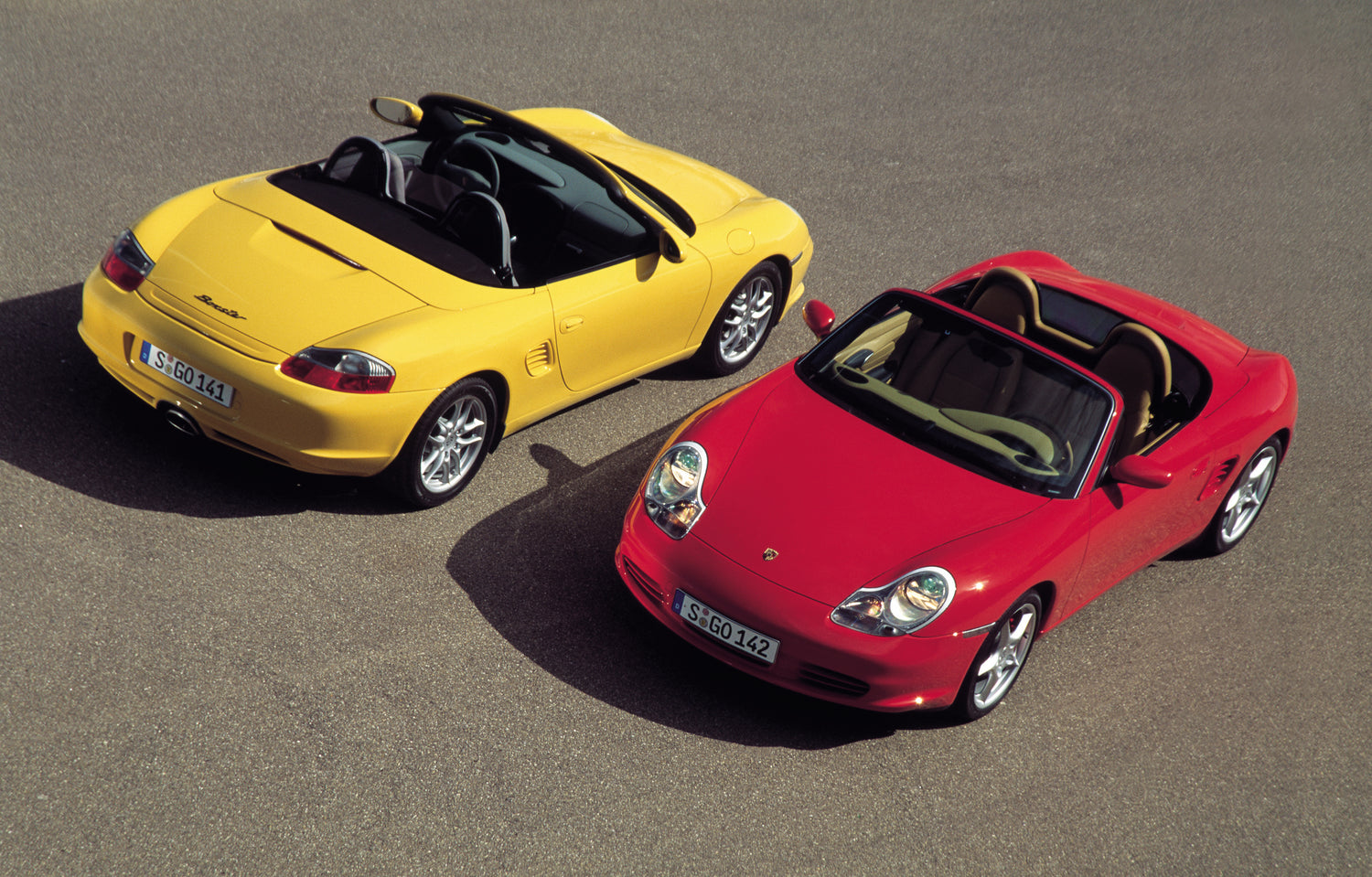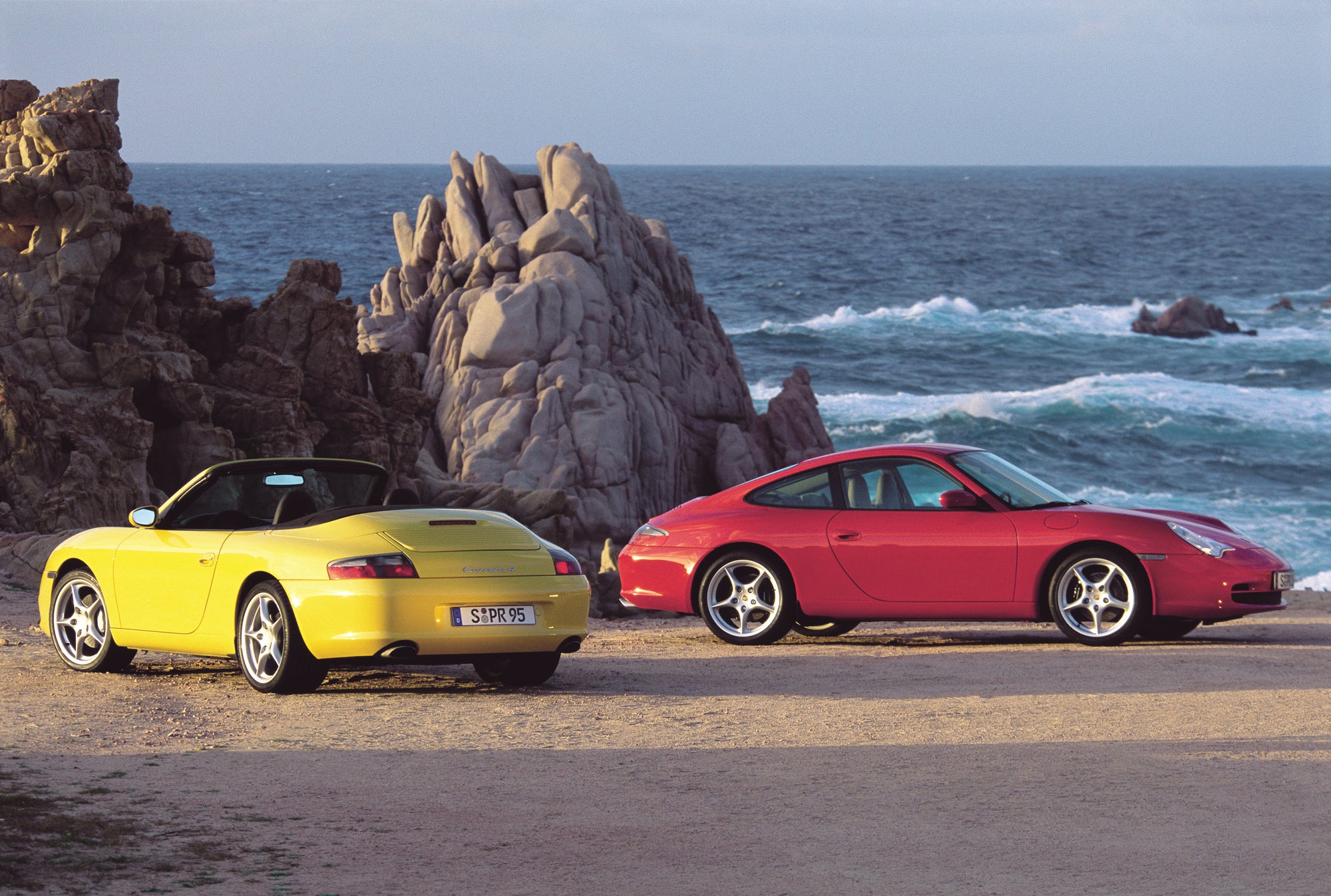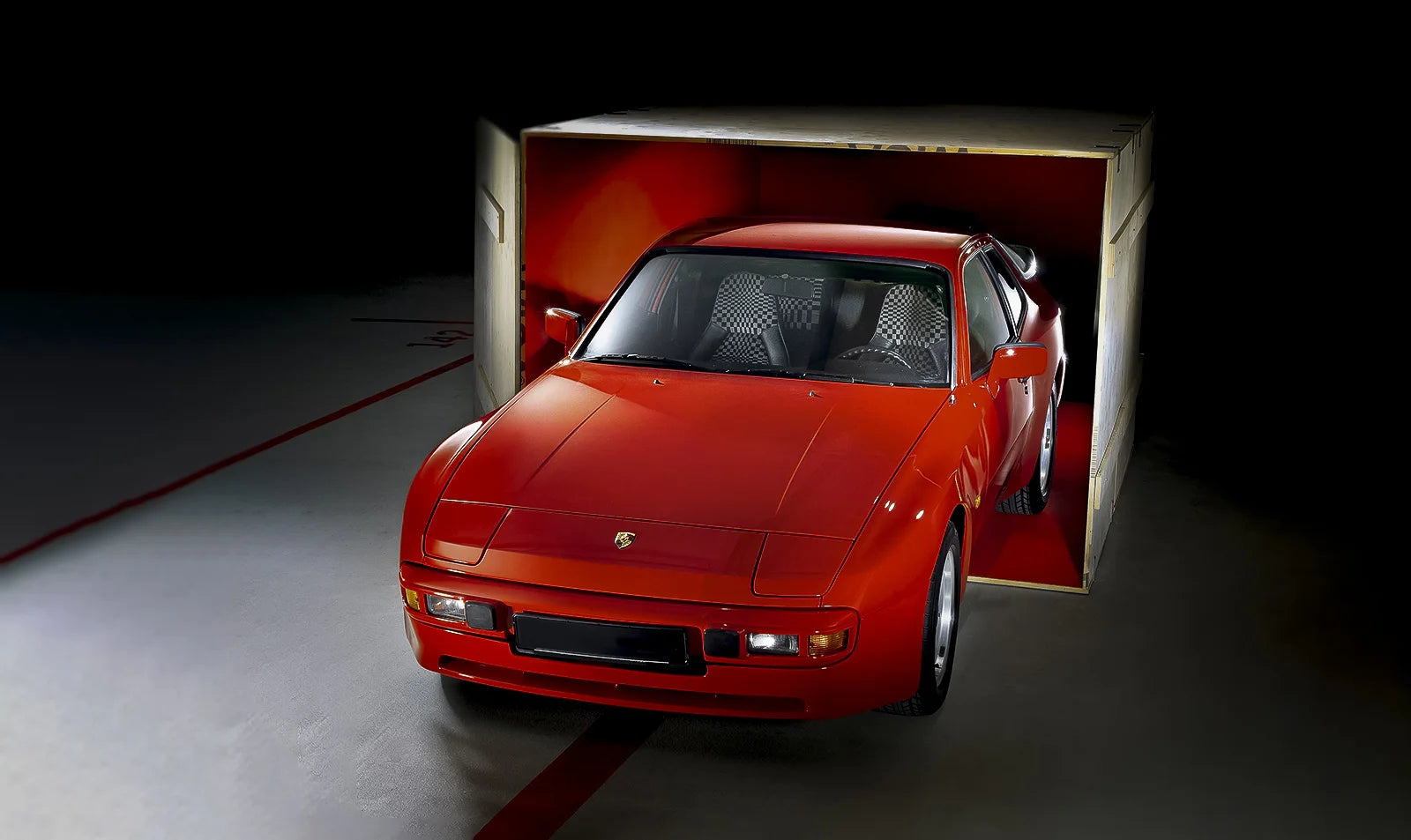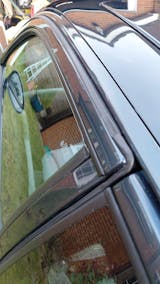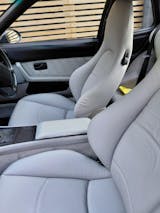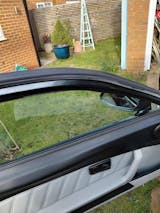Introduction
Often regarded as a lesser Porsche, the Boxster is anything but. In fact, the Boxster's success story is second only to 911's, and it is widely known that this model helped the company survive the 90s. This compact two-seater roadster sold in large quantities and provided the Porsche much-needed financial safety. The first-gen model (chassis code 986) set the template. Characteristic design, mid-mounted flat-six engine, vivid performance, open-air sensation and driving dynamics that offer 85% of the Porsche 911 feel for 60% of the money. It is easy to understand why the Boxster gained such popularity and why it has remained in production for almost 30 years. Interestingly, the original Boxster 986 is still relevant, even three decades after its introduction, as one of the cheapest ways into Porsche ownership and one of the purest forms of Porsche car-building philosophy. So, let's help you find the perfect one.

What Is It?
Porsche always had entry-level sports cars, often sold better than its more upscale models. The 924 and 944 were very popular during the late 70s and 80s, but they became obsolete and outdated as the decade ended. Porsche was also stuck with the old 911 platform with air-cooled engines, an ageing 928 model, and alarmingly low sales figures. The company needed to modernise its lineup and rejuvenate its appeal quickly. By the early '90s, the idea of a brand-new entry-level model materialised. Instead of making another front-engine car, Porsche returned to its roots for design and engineering ideas. The designers and engineers were inspired by the timeless looks and layout of the legendary 550 Spyder and another forgotten mid-engine Porsche model – the 914. Add to the mix modern technology, rev-happy flat-six engines, and affordable prices, and you can see why thousands of customers rushed to Porsche dealerships when the new model was released in 1996.

Porsche Boxster 986 Timeline
The Porsche Boxster was introduced for the 1996 model year and sold only as a two-seater convertible. The name was derived from "Boxer" and "Roadster", emphasising its flat-six “boxer” engines and roadster form. The base engine was a 2.5-litre M96 with 201HP, offered from 1996 to 1999. In 1999, the 2.7-litre flat-six was introduced with 217HP. The top-of-the-range Boxster S model was presented in 2000 with a 3.2-litre flat-six engine and 250HP. In 2002, the Boxster got a slight refresh with new front and rear lights, several more minor improvements, and a slight bump in power for the 2.7-litre engine, which now had 225HP, and the Boxster S delivered 258HP.

The Porsche Boxster 986 Bodywork
The good news about the 986 Boxster is that they don't suffer from rust issues, except for poor accident repair, which can cause body panels to rot. Regardless, a thorough inspection is advised. Pay attention to panel gaps, which can also signal that the car was involved in an accident but not repaired properly. If the car has any rust issues, walk away.

One of the main aspects of the 986's bodywork is the roof. All Boxsters of this generation are convertibles, and roofs are generally trouble-free. However, you should inspect for signs of leaks and blocked drain holes. Leaves and dirt will create blockages and cause the water to leak behind the seats. The roof should work flawlessly, and the edges should fit tightly over the windshield. Porsche offered an aluminium hard top as an option; if the car has one, it can be a plus. Please note that early Boxsters (from 1996 to 2002) all have plastic rear windows that fade and go cloudy over time. The 2002 to 2004 models received a heated rear glass screen, which was dimensionally a little smaller but a better and more durable solution.

The Porsche Boxster 986 Engines
All engines used in the 986-generation Boxsters are detuned versions of the 3.4-litre flat-six used in the Porsche 996 911. Those were the company's first liquid-cooled flat-six engines. However, despite being modern, powerful, and advanced, those engines had their share of problems, some of which could be catastrophic.

The first was the issue with cracked bore liners on the engine block, which affected the pre-2000 models. Porsche didn’t quite perfect the casting process, which resulted in some engine blocks being porous and prone to cracking the cylinder walls. This could lead to overheating and terminal failures. However, the real challenge is detecting it before purchasing. The only way to do this is to invest in a borescope inspection, which will tell you precisely what is happening inside the cylinders. Yes, it is complicated, and not all workshops and garages offer this service, but it is worth the effort since the repair bills can be enormous. Porsche realised the problem, and all the engines from late 1999 had the casting issues resolved. Our tip would be to aim for one of these engines.

Just like most high-performance German cars, the Porsche Boxster 986 also had a problem with timing chain guides. The M96 engines used a VarioCam camshafts system, which used a timing chain for better durability. However, the engine's vibration and friction from the chain itself damaged the plastic guiding rails, sending the debris to the oil system, clogging the oil filter and reducing the lubrication of the engine's vital components. Porsche sorted this issue in 2000 with an upgraded design and better lubrication. However, when shopping for an earlier model, be sure that the chain and the tensioners have been replaced and that the car has had frequent oil changes in its service history.

If you notice the oil leak underneath the car, it's likely to be a failing rear main seal. Although the parts to fix it are very cheap, the labour is costly since it requires removing the engine and the gearbox to get to the rear main seal. Fortunately, the leak is rarely extensive, so repairing the seal when the car goes for clutch replacement is recommended (thus avoiding removing the engine and gearbox more than once). Even if you spot a few drops of oil underneath the vehicle you are looking to buy, we’d be recommending a haggle on the asking price.

Finally, we get to the notorious InterMediate Shaft (IMS) bearing, a problem plaguing the Porsche community for years and affecting numerous Boxsters, Caymans, 996 and 997 911s. Early (pre-2000 Boxsters) are less affected with their more durable double bearing solution. It’s the later 2000-2004 models with single bearings that seem to suffer the most. Ultimately, it is bearing lubrication that is the root cause of the problem. The IMS drives the camshafts and therefore has an indirect effect on engine timing. Bearing failures can result in violent piston-valve contact, which requires either a complete engine rebuild or a brand-new engine. Fortunately, the issue is well documented, and there are numerous replacement kits that can sort out the problem. If the Boxster you want to buy hasn't gone for an IMS bearing replacement, give it some consideration, it may be a good idea, but then again, given the vehicles age and mileage, it may not actually be a problem.
There are also a couple of minor engine issues you might encounter. When you take the car for a test drive and it has rough idle and misfires, then the ignition coil packs might be coming to the end of their life. The ignition coils are located near exhaust headers, and heat from the exhaust pipes affects the plastic, which cracks over time. Also, if the car hesitates to accelerate and feels lethargic, the mass air flow sensor might be dirty or need replacing. Both of those issues can be routinely sorted.
Porsche Boxster 986 Transmission
The 986 generation has been offered with both manual and Porsche's famous Tiptronic 5-speed automatic gearbox. The early Boxsters had the 5-speed manual, while the S had a 6-speed. Regardless of the choice, there are no significant problems with the transmission, and the more complicated Tiptronic is as reliable as manual as long as it has been regularly maintained. In the manual examples, the clutch should feel light and smooth; if not, it needs replacing. Due to the mid-engine layout, this is an engine-out job.

Porsche Boxster 968 Suspension And Brakes
There are no particular issues in this department. However, due to the age of the cars in question, the areas you want to check are suspension bushings, which are known to have a life span of about five years, shocks that are known to leak, and particularly coil springs. On some Boxsters, springs are known to crack, and that is easily visible by a tilted stance and a clunking sound when driving.
The 986 is relatively light, so the brakes feel strong and firmly stop the car. The braking system come as standard with ABS and discs on both front and rear axles. If the brakes feel weak or squeal, either the pads are worn to the metal or the previous owner used cheap replacement pads and discs. Always check the service history and the quality of the parts installed. At FrazerPart, you can always find all you need to overhaul the suspension and brakes of your Porsche Boxster 986.

Porsche Boxster 986 and 996 911 Interchangeable Parts
You have probably noticed that, at least from the front, the Boxster 986 and 996-generation of the Porsche 911 look alike, and you have wondered if any of the parts are the same. The Boxster came a year before the 996 and showcased a new design with new front fascia, headlights and water-cooled flat-six engines. The two models share some parts, but each car's main components, engines, suspension, and platform, are predominantly unique. The two Porsches are very similar in the front end and share the wings and bonnet; although the bumpers look different, they can be interchanged. The 996 has bigger front brakes, which can be fitted on the 986, but the similarities are primarily visible in the interior, where the central console, seats, trim, A/C, and so on are the same. The dash layout is almost identical, but the 911 has a famous 5-dial dash, while the Boxster has a 3-dial setup.

Porsche Boxster 986 Parts by FrazerPart
The 986-gen Boxster is now a very attractive proposition since it is affordable enough for average enthusiasts, powerful enough to be fun, and a perfect blend of analogue sports cars with modern features. Of course, to fully enjoy this model, you will need parts support, and this is where FrazerPart excels. Whether restoring or just maintaining the Boxster 986, we have everything you need for a complete mechanical overhaul, along with some exterior and interior parts and components. You can shop confidently, knowing that all our products are original items at affordable prices.

Which One To Get?
During its eight-year production run, Porsche delivered over 164,000 Boxsters, which is one of the reasons why you can find one today for as little as £5000 (GBP). The Boxster 986 is now a "classic" since the oldest examples are close to 30 years old. Many of the cars you will encounter will be in a poor and negligent state. Remember the old saying that "the most expensive Porsche is the cheap one". Comprehensive service history and regular MOTs are more important than mileage.
If you are looking for an entry-level Porsche and a dependable driver to have fun with, a mechanically sound example with higher mileage will be just as enjoyable. A 250HP Boxster S is not considerable power compared to modern standards, but combine it with a small roadster weighing just 1.3 tons, results in a very engaging driver's experience. In our opinion the manual is the one to opt for but you won’t be disappointed with a Tiptronic either!

Conclusion
We can expect that the prices of 986-generation Boxsters will start to rise soon. More and more people are discovering just how great this roadster is to drive, how inexpensive it is to buy, and how affordable it is to maintain. This is very refreshing compared to other modern classic Porsche models that are all way beyond the reach of average enthusiasts. It makes the 986 one of the rare cars that can be purchased as a fun, enjoyable and practical weekend toy, and ultimately made into a smart investment.

